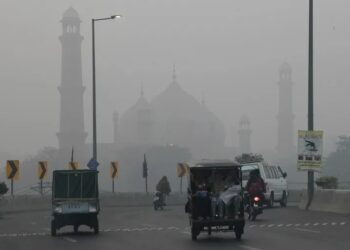The Finance Ministry asks ministries to return surplus PSDP funds after a budget cut from Rs1.4tr to Rs1.1tr, ensuring audit compliance.
Excess PSDP Funds to Be Returned:
With relation to its development budget, the Pakistani government has made a significant move. All federal ministries and divisions have been instructed by the Ministry of Finance to refund any excess funds they received for the fiscal year 2024–2025 under the Public Sector Development Programme (PSDP). This choice may appear straightforward, but it has profound implications for the government’s spending strategy and level of commitment to budgetary planning.
What Is PSDP?
First, understand what the Public Sector Development Programme (PSDP) is. PSDP is a key part of the federal budget. It includes funding for major development projects across the country such as
- Building roads and highways
- Constructing schools and hospitals
- Improving water supply systems
- Investing in energy and power projects
Every year, the government allocates a specific amount for PSDP. These funds are meant to boost economic growth, create jobs, and improve living conditions for the people of Pakistan.
Budget Story: From Rs1.4 Trillion to Rs1.1 Trillion
In the beginning of the fiscal year 2024–25, the government had approved a total of Rs1.4 trillion for PSDP. Ministries made their project plans and funding demands based on this big figure. But due to financial pressures and limited resources, the government later revised the PSDP ceiling to Rs1.1 trillion. This means that Rs300 billion of the earlier budgeted amount had to be cut down.
Finance Ministry:
Because ministries had already requested and, in some cases, received funds based on the original Rs1.4 trillion budget, the Ministry of Finance has now asked them to return or adjust the extra money. This money is considered “extra” or “surplus” since the budget was officially reduced. A formal letter was sent to all ministries and divisions telling them to issue surrender orders. These orders will send the extra money back to the Ministry of Finance.
Why Does This Decision Matters?
There are several important reasons why the Finance Ministry has taken this action:
Avoid Audit Objections:
One major reason is to avoid problems during future audits. If ministries use more money than they were officially allowed under the revised budget, audit teams may raise objections. These objections can cause serious issues later, including investigations, fines, or delays in future projects.
Ensure Budget Discipline:
By asking ministries to return excess funds, the Finance Ministry is promoting financial discipline. It shows that the government wants to stick closely to its revised spending limits and not allow wasteful or unauthorized spending.
Correct Use of Taxpayer Money:
Every rupee in the PSDP comes from the taxes paid by the people or through loans taken by the government. These funds must be used carefully. Returning unused or excess funds is a step towards better governance and transparency. Now, let’s understand what caused this situation in the first place. It seems that ministries made their spending plans based on the initial Rs1.4 trillion budget, without waiting for final approvals. When the Finance Ministry later cut the budget to Rs1.1 trillion, it created a gap between the money asked and the money available.
Lessons for the Future:
This incident provides some important lessons for better financial planning:
Wait for Final Budget Approval
Government departments should avoid rushing into planning or requesting funds until the budget figures are officially approved and finalized.
Better Communication
There must be better communication between the Finance Ministry and other departments. Budget revisions should be quickly and shared with all stakeholders.
Flexibility in Planning
Ministries should build flexibility into their development plans, so they can adjust quickly if budget cuts happen.
What Will Happen to the Returned Funds?
The money returned by the ministries will go back into the central fund of the Finance Ministry. This money can then be:
- Saved for future emergencies
- Reallocated to high-priority projects
- Used to reduce the budget deficit
In simple words, returning these funds helps the government spend within its means and avoid going deeper into debt.
Public Reaction:
People are keeping a close eye on this scenario. Some worry that reducing the PSDP budget may result in fewer development initiatives, which could have an impact on services, infrastructure, and jobs. Others, on the other hand, are in favour of the action, arguing that the government must behave responsibly and refrain from squandering tax dollars.
However, there is still worry that ill-considered planning and hurried judgments may undermine long-term development objectives. Projects may be postponed or terminated if ministries lack timely and precise information.
What Should the Government Do Next?
Here are a few suggestions to avoid similar issues in the future:
Realistic Budgeting
The government should only promise as much development spending as it can afford. Overpromising and then cutting budgets mid-year causes confusion and mistrust.
Early Consultations
Before finalizing the PSDP, the Finance Ministry should hold consultations with all ministries to understand their real needs and funding limits.
Monthly Review Meetings
Regular review meetings can help track project progress, and funding needs, and make timely adjustments if necessary.
Make Budget Details Public
Making PSDP project details available to the public can improve transparency. When citizens know how funds are being used, it creates pressure for honest and efficient use.
Conclusion:
The decision by the Finance Ministry to retrieve further PSDP monies serves as a reminder to improve financial management. It demonstrates how crucial ministry collaboration is and how budgetary restrictions must be adhered to. Yes, Pakistan’s future depends on growth. However, it must be carried out with the resources at hand. By taking this action, the government can enhance accountability, foster public trust, and prevent audit issues.
The administration must ensure that such issues do not recur in the future. Pakistan can still accomplish significant development work without wasting money or running financial risks if it improves its planning, communicates openly, and maintains stringent budgetary controls. Although this choice may appear technical, it conveys a strong message: be transparent, plan thoroughly, and spend prudently. That’s the way to true advancement.

























